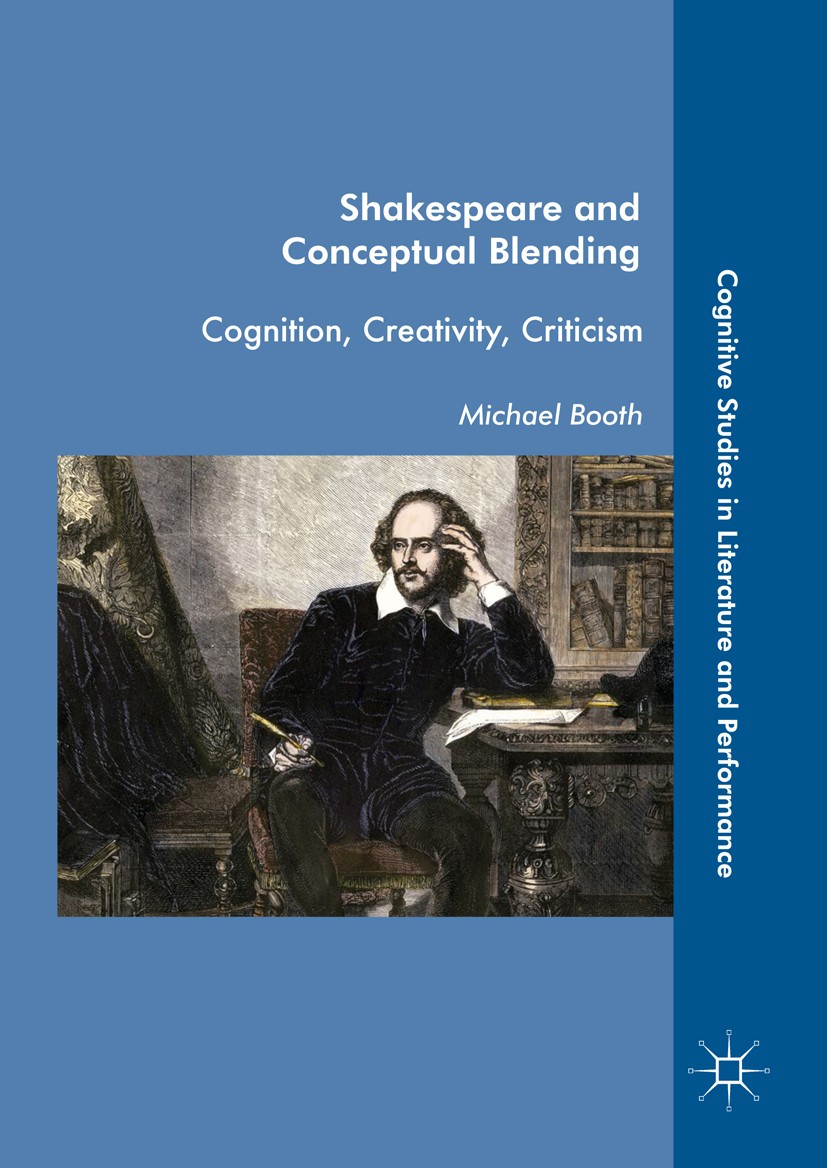| 书目名称 | Shakespeare and Conceptual Blending |
| 副标题 | Cognition, Creativit |
| 编辑 | Michael Booth |
| 视频video | http://file.papertrans.cn/867/866182/866182.mp4 |
| 概述 | Represents the first account of Shakespeare’s artistry seen through the lens of blending.Appeals to scholars working in several disciplines, including Theatre, Literature, Language and Psychology.Prov |
| 丛书名称 | Cognitive Studies in Literature and Performance |
| 图书封面 |  |
| 描述 | This book shows how Shakespeare’s excellence as storyteller, wit and poet reflects the creative process of conceptual blending. Cognitive theory provides a wealth of new ideas that illuminate Shakespeare, even as he illuminates them, and the theory of blending, or conceptual integration, strikingly corroborates and amplifies both classic and current insights of literary criticism. This study explores how Shakespeare crafted his plots by fusing diverse story elements and compressing incidents to strengthen dramatic illusion; considers Shakespeare’s wit as involving sudden incongruities and a reckoning among differing points of view; interrogates how blending generates the “strange meaning” that distinguishes poetic expression; and situates the project in relation to other cognitive literary criticism. This book is of particular significance to scholars and students of Shakespeare and cognitive theory, as well as readers curious about how the mind works.. |
| 出版日期 | Book 2017 |
| 关键词 | Mind; Narrative; Integration; Brain; Neuroplay |
| 版次 | 1 |
| doi | https://doi.org/10.1007/978-3-319-62187-6 |
| isbn_softcover | 978-3-319-87251-3 |
| isbn_ebook | 978-3-319-62187-6Series ISSN 2945-7297 Series E-ISSN 2945-7300 |
| issn_series | 2945-7297 |
| copyright | The Editor(s) (if applicable) and The Author(s) 2017 |
 |Archiver|手机版|小黑屋|
派博传思国际
( 京公网安备110108008328)
GMT+8, 2025-12-15 00:40
|Archiver|手机版|小黑屋|
派博传思国际
( 京公网安备110108008328)
GMT+8, 2025-12-15 00:40


